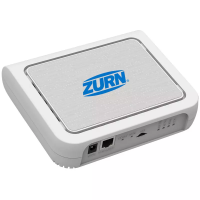7
PROCEPTOR
OWNER'S MANUAL
2 Protecting the Wastewater Collection System
1 Inspect and maintain your Proceptor separator regularly.
2 Be familiar with local regulations that govern the acceptable limits for wastewater from your operation and any other
required practices.
3 Be proactive. Source a local plumber, drain cleaning service, licensed separator pumping and disposal operator before
you have a plumbing emergency. With attentive maintenance, you can avoid emergency situations.
4 Witness all Proceptor separator maintenance to ensure that the device is being properly cleaned and is operating
eciently. Keep an inspection and service maintenance log. All inspection and maintenance records should be retained
on file for a period of at least two years.
2.1 ESSENTIAL BEST MANAGEMENT PRACTICES (BMPs)
The practice of preventing or reducing the amount of oils, grease and solids discharged into the drainage system can prove to
be very beneficial to your company. The reduction of oils, grease and solids going down the drain will result in less frequent
maintenance of your Proceptor, and greater assurance of being compliant with local regulatory bylaws. The reduced chance of
drain line blockages and a reduced maintenance frequency will result in lower costs for your company.
Check to see if your government has published BMPs. They may be available on a website or from your municipal oce. The
following are brief outlines of major points found in typical BMPs. Your industry’s BMPs will likely have additional items and
useful tips.
2.2 KITCHEN BMPs
1 Keep grease out of the drains. Prevent pouring excess oil or grease down the drain. The thick ‘yellow grease’ should be
collected and rendered. The more ‘yellow grease’ collected and rendered, the less grease that ends up in the drains or in
your Proceptor separator. Yellow grease can be used as raw material for biofuels. Grease that goes down the drain and
mixes with water becomes ‘brown grease’ that is more dicult to recover.
2 Scrape grease and food from plates and cookware before washing. Using gloves or rubber spatulas, grease and food
scraps should be scraped o plates and cookware before washing. This material should be added to the trash, recycled
or composted as part of a food waste recycling program.
3 Use drain screens. Using drain screens, particularly on sink drains, will prevent much of the grease and greasy food
particles from ending up in the drains.
4 Wipe up grease spills before using water. Grease spills or drippings should be wiped up with a paper or cloth towel
before using water to minimize the amount of grease ending up in the drains.
5 Limit garbage disposal use to non-greasy food materials. Restaurants with garbage disposals should be limited to
processing non-greasy food materials like fruits or vegetables in food preparation areas to minimize the amount of
grease ending up in the drains.
6 Train employees. Employees must be trained to implement the kitchen BMPs and/or properly inspect and maintain your
Proceptor separator. Also, a ‘NO GREASE’ sign above sinks or on the front of dishwashers acts as a constant reminder of
employee training and the kitchen BMPs.

